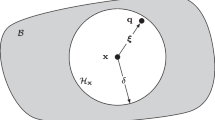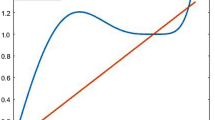Abstract
The performance of transcendental functions is important to high-performance applications. Various customized implementations of transcendental functions in practice to obtain better performance for some particular applications, but specializing the transcendental functions for each individual application cannot scale with the increase and diversity of the latter. It is thus of vital importance to design and implement an automatic generator for transcendental functions. This article implements an automatic generator TGen (transcendental function generator) for variable precision transcendental functions. Given a specific computation interval, TGen can automatically generate independent implementations with different precisions for a transcendental function, and select the most suitable version for the target by means of a code filtering strategy. Our generator can now support the automatic generation of 18 representative transcendental functions. The experimental results show that TGen can generate code with the unfixed accuracy, and the performance of the generated code is superior to that of the code generated by metalibm. More specifically, when compiled with the GCC compiler, the code generated by TGen can provide a mean speedup of 1.84\(\times\) over that of a metalibm’s version, while the speedup of TGen’s code over that of the metalibm is 1.27\(\times\) when compiled with the SW5CC compiler.






Similar content being viewed by others
References
Muller JM (2020) Elementary functions and approximate computing. Proc IEEE 108(12):2136–2149. https://doi.org/10.1109/JPROC.2020.2991885
Xu JC , Guo SZ, WANG L (2012) Optimization technology in simd mathematical functions based on vector register reuse. In: 2012 IEEE 14th International Conference on High Performance Computing and Communication & 2012 IEEE 9th International Conference on Embedded Software and Systems, pp 1102–1107. https://doi.org/10.1109/HPCC.2012.161
Franchetti F, Low TM, Popovici DT, et al (2018) SPIRAL: extreme performance portability. In: IEEE special issue on From High Level Specification to High Performance Code 2018, vol 106, pp 1935–1968. https://doi.org/10.1109/JPROC.2018.2873289
Muller JM (2016) Elementary functions, algorithms and implementation, 3rd edn. Birkhäuser, Boston. https://doi.org/10.1007/978-1-4899-7983-4
Saint-Geniès HDL (2018) Elementary functions: towards automatically generated, efficient, and vectorizable implementations. Université de Perpignan. https://tel.archives-ouvertes.fr/tel-01841424/document
Mouilleron C, Revy G (2011) Automatic generation of fast and certified code for polynomial evaluation. In: Proceedings of the 2011 IEEE 20th Symposium on Computer Arithmetic, pp 233–242. https://doi.org/10.1109/ARITH.2011.39.
Mouilleron C, Najahi MA, Revy G (2014) Automated synthesis of target-dependent programs for polynomial evaluation in fixed-point arithmetic. In: SYNASC: Symposium on Symbolic and Numeric Algorithms for Scientific Computing, Timisoara, Romania, pp 141–148. https://doi.org/10.1109/SYNASC.2014.27
Brunie N, Lauter C, Revy G (2019) Precision adaptation for fast and accurate polynomial evaluation generation. In: 2019 IEEE 30th International Conference on Application-specific Systems, Architectures and Processors (ASAP), vol 2160-052X, pp 41-41. https://doi.org/10.1109/ASAP.2019.00-32
Ewart T, Cremonesi F, Schürmann F, Delalondre F (2020) Polynomial evaluation on superscalar architecture, applied to the elementary function \(e^x\). ACM Trans Math Softw 46(3), 28. https://doi.org/10.1145/3408893
Saint-Geniès HDL, Defour D, Revy G (2017) Exact lookup tables for the evaluation of trigonometric and hyperbolic functions. IEEE Trans Comput 66(12):2058–2071. https://doi.org/10.1109/TC.2017.2703870
Volkova A, Muller JM (2019) Semi-automatic implementation of the complementary error function. In: ARITH 2019—26th IEEE Symposium on Computer Arithmetic, pp 1–8
Lim JP, Aanjaneya M, Gustafson J, Nagarakatte S (2021) An approach to generate correctly rounded math libraries for new floating point variants. Proc ACM Program Lang 5:1–30. https://doi.org/10.5281/zenodo.4067194
Chevillard S, Joldes M, Lauter C (2010) Sollya: an environment for the development of numerical codes. In: ICMS’10 Proceedings of the Third International Congress Conference on Mathematical Software. vol 6327, pp 28–31. https://doi.org/10.1007/978-3-642-15582-6_5
Brunie N, Dinechin FD, Kupriianova O, Lauter C (2015) Code generators for mathematical functions. In: 2015 IEEE 22nd Symposium on Computer Arithmetic, pp 66–73. https://doi.org/10.1109/ARITH.2015.22
Brisebarre N, Chevillard S (2007) Efficient polynomial L-approximations. In: 18th IEEE Symposium on Computer Arithmetic (ARITH ’07), pp 169–176. https://doi.org/10.1109/ARITH.2007.17
Kupriianova O, Lauter C (2014) A domain splitting algorithm for the mathematical functions code generator. In: 48th Asilomar Conference on Signals, Systems and Computers, Pacific Grove, CA, 2014, pp 1271–1275. https://doi.org/10.1109/ACSSC.2014.7094664
Hao JW, Xu JC, Guo SZ, Xia YY, Liu D (2019) Design and implementation of variable precision algorithm for transcendental functions. J Phys: Conf Ser 1325:012119. https://doi.org/10.1088/1742-6596/1325/1/012119
Muller JM, Brunie N, Dinechin FD, Jeannerod CP et al (2018) Handbook of floating-point arithmetic, 2nd edn. Birkhäuser, Boston
Brisebarre N, Muller JM, Tisserand A (2006) Computing machine-efficient polynomial approximations. ACM Trans Math Softw: TOMS 32(2):236–256. https://doi.org/10.1145/1141885.1141890
Tang Ping (1989) Table-driven implementation of the exponential function in IEEE floating-point arithmetic. ACM Trans Math Softw 15(2):144–157. https://doi.org/10.1145/63522.214389
Tang Ping (1990) Table-driven implementation of the logarithm function in IEEE floating-point arithmetic. ACM Trans Math Softw 16(4):378–400. https://doi.org/10.1145/98267.98294
Tang P (1991) Table lookup algorithms for elementary functions and their error analysis. In: Proceedings of the 10th IEEE Symposium on Computer Arithmetic. Argonne National Lab, pp 232–236. https://doi.org/10.1109/ARITH.1991.145565
Ping Tang (1992) Table-driven implementation of the expm1 function in IEEE floating-point arithmetic. ACM Trans Math Softw 18(2):211–222. https://doi.org/10.1145/146847.146928
Bruce R, Devlin M, Marshall S (2008) An elementary transcendental function core library for reconfigurable computing. Reconfigurable Systems Summer Institute (RSSI 2007), pp 1–9. https://core.ac.uk/display/9022716
Laurent F, Guillaume H, Vincent L, Patrick P, Paul Z (2007) MPFR: a multiple-precision binary floating-point library with correct rounding. ACM Trans Math Softw 33:13. https://doi.org/10.1145/1236463.1236468
Xu JC, Huang YZ, Guo SZ, Zhou B, Zhao J (2015) Testing platform for floating mathematical function libraries. J Softw 26(6):1306–1321. https://doi.org/10.13328/j.cnki.jos.004589
Xu JC, Guo SZ, Huang YZ, Wang L (2014) Access optimization technique for mathematical library of slave processors on heterogeneous many-core architectures. Comput Sci 41(06):12–17. https://doi.org/10.11896/j.issn.1002-137X.2014.06.003
Dinechin FD, Lauter C, Melquiond G (2011) Certifying the floatingpoint implementation of an elementary function using Gappa. IEEE Trans Comput 60:242–253. https://doi.org/10.1109/TC.2010.128
Acknowledgements
This work was supported by the National Natural Science Foundation of China—Precision analysis and optimization of basic mathematical functions on domestic processors (No. 61802434).
Author information
Authors and Affiliations
Corresponding author
Additional information
Publisher's Note
Springer Nature remains neutral with regard to jurisdictional claims in published maps and institutional affiliations.
Rights and permissions
About this article
Cite this article
Hao, J., Xu, J., Guo, S. et al. Design of variable precision transcendental function automatic generator. J Supercomput 78, 2196–2218 (2022). https://doi.org/10.1007/s11227-021-03937-8
Accepted:
Published:
Issue Date:
DOI: https://doi.org/10.1007/s11227-021-03937-8




